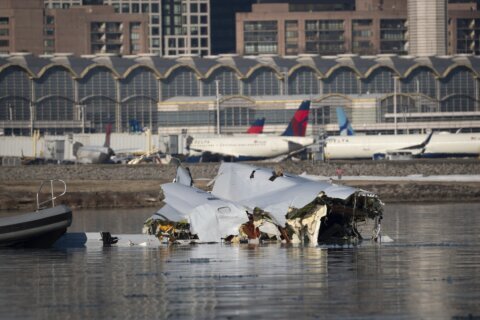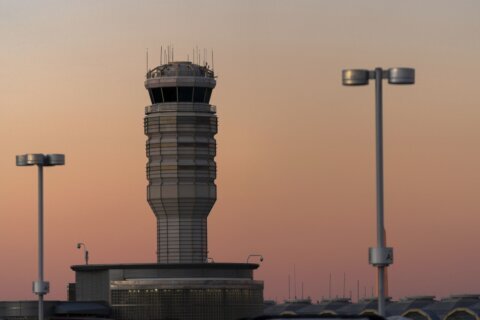In the three weeks that have followed a catastrophic midair collision near D.C. that killed 67 people, a series of other high-profile aviation incidents have unfolded in North America.
Most recently, two people were killed when two small planes collided in Arizona on Wednesday.
A Delta jet flipped on its roof while landing in Toronto on Monday; all 80 people on board survived.
Earlier this month, a commuter plane crashed in Alaska, killing 10 people.
On Jan. 31, a medical plane carrying a child patient crashed in Philadelphia, seven people were killed and 19 others injured.
WTOP’s Dan Ronan, who covers transportation issues, joined anchor Linh Bui on Wednesday to discuss the string of airline incidents.
This Q&A has been lightly edited for length and clarity.
Linh Bui: Dan, these high-profile aviation incidents, so many of them, what are your sources saying?
Dan Ronan: Well, Linh an aviation expert I talked with this afternoon said, after almost 15 years of very few incidents, in his words, ‘It’s just a weird time in the aviation business.’ And from time to time, these type of cycles do happen where there are a number of incidents, and they always seem to take place in a very compressed time frame, as you just pointed out a few moments ago.
Linh Bui: For someone feeling nervous about flying, is there anything they can do to be safer on a plane?
Dan Ronan: Listen to the flight attendants. Pay attention to that pre-trip briefing. It’s a serious moment and the flight attendants give you good information. Take a few moments, read the seat card that’s in the seat back pocket. Also, this is something that I think is so imperative, wear your seat belt at all times. I don’t even like to get up to go to the lavatory when I’m on a flight. I like to sit in my seat and be belted down all the time. The seat belt, as we saw in the Toronto crash, saved lives because the people stayed in their seat. What was clearly an accident that 20 years ago would not have been survivable; it was very survivable the other night in Toronto.
Linh Bui: Questions have been raised about air traffic control systems. Should we be concerned about the shortage of air traffic controllers?
Dan Ronan: We need more air traffic control, about 20% more to be up to full capacity. The FAA Linh says that they’re doing all they can to hire more men and get them into these safety critical jobs. However, this is a very demanding job, and someone who’s either going through the air traffic control school in Oklahoma or one of the universities that’s certified, it takes a long time. Controllers are mandated they must retire at age 56. The Transportation Secretary, Sean Duffy said he’s considering seeking a raise of the retirement age for controllers, making it easier for them to stay on the jobs a few years longer. But it’s even not clear how many controllers would stick around if they were given the option. So we just don’t know. And Virginia Sen. Mark Warner said the other day that he’s very concerned that if a large number of controllers retire, we could have severe staffing problems at many airports.
Linh Bui: As someone who covers transportation closely, would you fly today?
Dan Ronan: I would but once I’m on the plane, I make sure I’m always buckled in, and I always count how many rows I am from the emergency exit. And if I can get a seat with an exit door, that’s the one I want to be in.
Linh Bui: Dan, thanks for the advice. That is WTOP is Dan Ronan who covers transportation issues.
Get breaking news and daily headlines delivered to your email inbox by signing up here.
© 2025 WTOP. All Rights Reserved. This website is not intended for users located within the European Economic Area.







